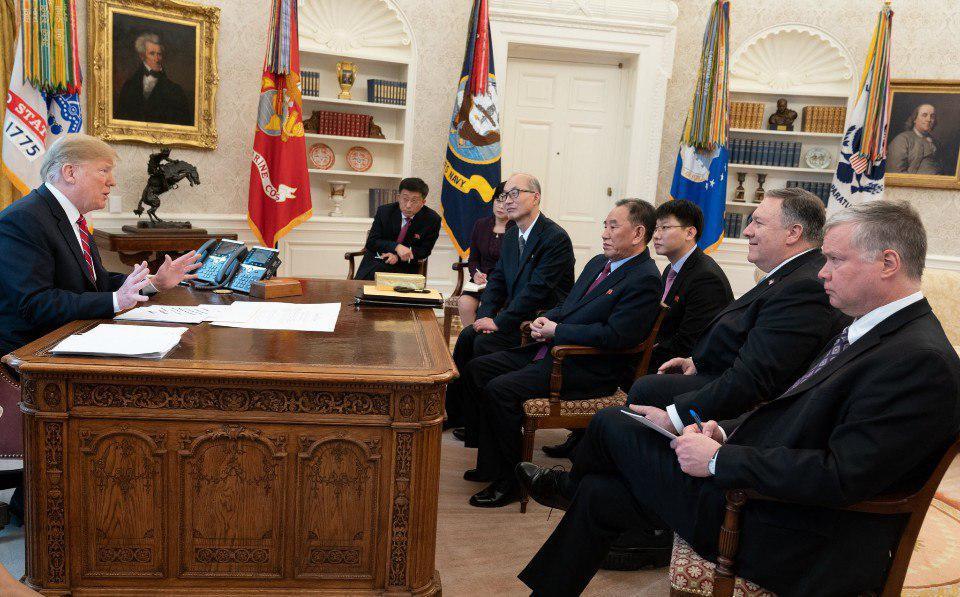 |
|
US President Donald Trump meets with Kim Yong-chol, vice chairman of the Workers’ Party of Korea (WPK), and his delegation at the White House on Jan. 19. Representing the US are Secretary of State Mike Pompeo (second from right) and State Department Special Representative for North Korean Policy Stephen Biegun (far right). (Dan Scavino’s Twitter account)
|
Washington Times reports US initiative focus on winning pledges from S. Korea, Japan and EU
The Donald Trump administration is reportedly considering an inter-Korean economic cooperation “package” ahead of a second North Korea-US summit as an incentive for North Korea’s denuclearization. With bilateral working-level talks for the summit also predicted to resume shortly, the two sides appear to be gearing up to hasten their summit preparations. In a Jan. 28, the conservative-leaning Washington Times reported that the Trump administration “is quietly preparing a special ‘economic package’ designed to entice North Korean leader Kim Jong-un into taking specific steps toward dismantling his nuclear weapons program.” Citing sources familiar with the plan, the newspaper reported that the initiative was spearheaded by State Department Special Representative for North Korea Stephen Biegun, who heads negotiations with Pyongyang for the US side. According to the report, the initiative is focused on winning pledges from South Korea, Japan, and the EU to provide billions of dollars in cash contributions for use toward North Korean social infrastructure and development projects. Support within the Trump administration for providing “incentives” to Kim has reportedly emerged after the failure to make concrete progress with the denuclearization process since the two leaders’ summit in Singapore last June. According to sources in the diplomatic affairs, ideas centering on inter-Korean economic cooperation are reportedly being examined as a way of fleshing out the vision of a “bright” post-denuclearization future for the North, as Trump has referred to on several occasions. The Washington Times also reported that the initiative includes creating a kind of “escrow account” as proof that the US and its allies will reward North Korea economically if it proceeds with denuclearization. But foreign affairs analysts questioned whether the approach would be realistic. The term “escrow” refers to keeping documents or cash in storage until a contract has been fully executed. To achieve its past nuclear deal with Iran, the US used US$1 billion (around 1.1 trillion won) that had been confiscated through sanctions. Biegun and Kim Hyok-chol to meet this weekend at the earliest At the same time, working-level talks for a second North Korea-US summit are reportedly poised to resume shortly. Biegun and former North Korean Ambassador to Spain Kim Hyok-chol will be meeting a second time after their introduction in Washington, DC, on Jan. 18. According to multiple foreign affairs sources, Kim and Biegun are set to meet around the time of the Lunar New Year holiday and attempt to coordinate an “agenda” for the summit, including denuclearization measures and corresponding actions






